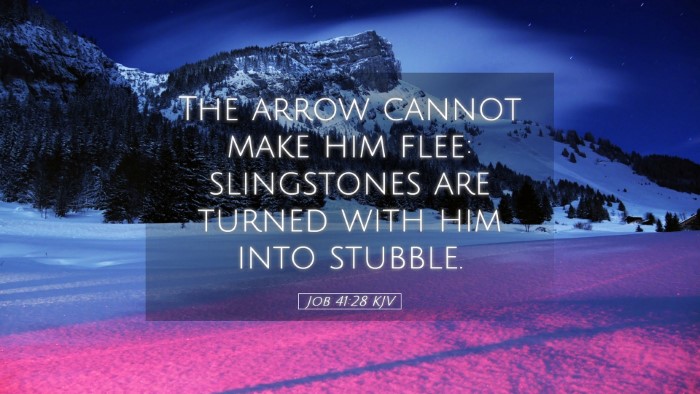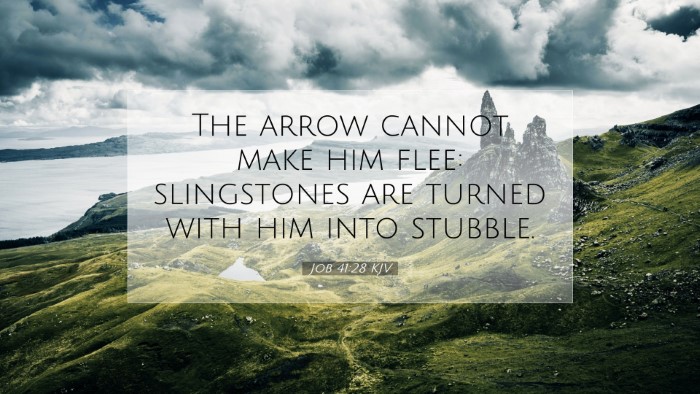Old Testament
Genesis Exodus Leviticus Numbers Deuteronomy Joshua Judges Ruth 1 Samuel 2 Samuel 1 Kings 2 Kings 1 Chronicles 2 Chronicles Ezra Nehemiah Esther Job Psalms Proverbs Ecclesiastes Song of Solomon Isaiah Jeremiah Lamentations Ezekiel Daniel Hosea Joel Amos Obadiah Jonah Micah Nahum Habakkuk Zephaniah Haggai Zechariah MalachiVerse
Job 41:1 Job 41:2 Job 41:3 Job 41:4 Job 41:5 Job 41:6 Job 41:7 Job 41:8 Job 41:9 Job 41:10 Job 41:11 Job 41:12 Job 41:13 Job 41:14 Job 41:15 Job 41:16 Job 41:17 Job 41:18 Job 41:19 Job 41:20 Job 41:21 Job 41:22 Job 41:23 Job 41:24 Job 41:25 Job 41:26 Job 41:27 Job 41:28 Job 41:29 Job 41:30 Job 41:31 Job 41:32 Job 41:33 Job 41:34

